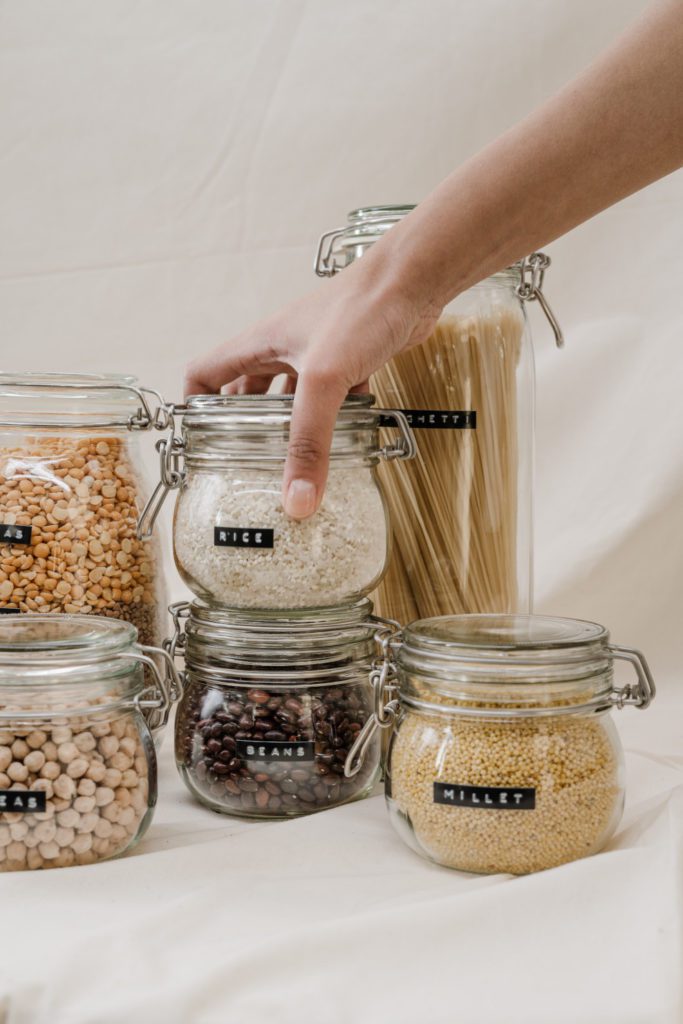One of the most popular books of 2014 was Marie Kondo’s, “The Life-Changing Magic of Tidying Up”. In it, Kondo spent over 200 pages convincing readers that a well-organized, intentionally curated home was the key to living a peaceful and orderly life. She advocates for choosing every item in your home with care. That way, each item you own is easily found and frequently used. This is also key in disaster prep organization.
While Kondo’s methods are a bit controversial, the underlying message she advocates for is firm: know what you have and where you have it. Straying from this leads to anxiety and a feeling of being overwhelmed or overtaken by your possessions.
Kondo is not alone in her knowledge that an organized and well-inventoried space is a happy space. Elizabeth Sander, Assistant Professor of Organizational Behavior at Bond University writes, “…research shows disorganization and clutter have a cumulative effect on our brains. Our brains like order, and constant visual reminders of disorganization drain our cognitive resources, reducing our ability to focus1.” Sander goes on to state that clutter can lead to serious mental and physical problems including increased anxiety levels, increased production of the stress hormone cortisol, our emotional intelligence, and even our digestion and sleep patterns.
An organized home has become so widely accepted as having mental health benefits that many bloggers, online course creators, and influencers have made a living helping people reap the benefits of decluttering. Psychology Today points out, “The human body is made up of tens of thousands of integrated biological and neurochemical systems, all of which are organized. Many of our cells operate on strict schedules or circadian rhythms. Even at the atomic level, we are well-regulated and well-organized. Without this organization, our bodies would collapse into chaos. It wouldn’t be surprising, then, if the reason we crave symmetry and cleanliness in our homes is to mirror the organization within our very own bodies. Neatness and order support health — and oppose chaos2.”
How This Relates With Disaster Preparedness
For preppers, in particular, a lack of organization or an excess of clutter could negate some of the benefits of prepping. You likely invested quite a bit of time researching what and how to stock up on your preps. But if you lose track of what you have – or where it is – your hard work could go to waste.
The stress of not knowing if you have something, or not remembering where you stored it is a frustrating experience. In addition, buying extra of a product because you don’t have a clear record or recollection of how much you already have can become a very wasteful practice. Not knowing your pantry inventory can add unnecessary dollars to your grocery bill as well as pounds of waste as you throw away items that were forgotten in the back corners of your cabinet. Most of us have experienced this on a small scale – now imagine that same experience, but with months’ worth of food in your prepped inventory.
As we discussed in a previous blog, the majority of preppers aren’t motivated by outlandish conspiracy theories. Prepping is about peace of mind and taking responsibility for your survival no matter what happens in the world around you. If your lack of organization in your prepped supply is giving you anxiety, you’re missing out on the benefits of disaster preparedness!
Having a well-stocked and efficiently organized supply is so important for supporting the overarching goal of disaster preparedness. Even if you’re not a naturally tidy or organized person, you are totally capable of keeping your prep inventory under control. Here are a few tips that will help you stay on top of your supply:
1. Plan ahead
Despite the news hype of the day, I urge you not to just walk down store aisles emptying shelves of cans into your cart. Be intentional about what you need, including consideration for personal preference, cost, shelf life, and building a balanced supply of preps. Consider the space you have available, the foods you and your family regularly eat and enjoy, and the nutritional needs of the people and pets that will need the items in the supply. The time you invest to plan out your disaster preparedness needs will save you money and will help protect you from being reactive and impulsive.
While it may be tempting to skip the planning phase, you want to have a prepping supply that will be most beneficial in the case of a disaster or SHTF situation. So take your time and be intentional about what you need, and how you will store it in a way that won’t add clutter and stress to your life. This is key to prep organization.
2. Keep Track of Your Prep Inventory
We want to carefully curate our prep inventory, based on our actual needs should a disaster or SHTF situation occur. In order to avoid hoarding items we don’t need more of, we need to use an accurate and convenient inventory system. The notebook and pencil system that some people use can get pretty difficult to manage as your prepping inventory grows, and as items are added or removed from inventory. You need something that can keep up with you – the best tool for the job!

For prep organization, we recommend using our Ultimate Prep System to track what you have, what you need, and what you’ve used. Many of its hundreds of users share that the system is very user-friendly (even for people claiming to not be computer or app savvy), and you can migrate an existing inventory system into the Ultimate Prep System quite easily.
3. Stay on Top of Prep Organization
Once you’ve started tracking the items you add to your supply, don’t lose steam when it comes to being consistent. The key to prep organization is to make it a habit to add foods or supplies to your inventory as you’re putting them away, rather than thinking that you’ll do it later. Our Ultimate Prep System makes it quick and easy to do, with a mobile app and even barcode scanning.
While it may seem like a burden in your day to log your preps, many users share that they really like to see the instant feedback their updates make on their dashboard, and the confidence and peace of mind knowing they have their prep inventory well managed. We can promise you that using your spreadsheet every single time you use or discard an item will be much easier than trying to catch up with tracking after you’ve let it go for a long time.
Prep Organization Conclusion
We aren’t sure how Marie Kondo feels about having a prepper inventory system, but we can quote her as saying, “The essence of effective storage is this: designate a spot for every last thing you own.” Every item you add to your inventory should have a place, and you should be able to quickly assess and access your supply when a need presents itself. The peace of mind that comes from taking responsibility for your survival will only grow with an inventory that is planned out, organized, and regularly tracked.




Excellent post
Great post
Thanks for info
always good to be ready
Thank you!
Thanks, this info is very important
Excellent advice. Doing this would make everything easier if A disaster strikes.
I appreciate the comment Buddy. Thanks for visiting. Hope you like what you see.
Always good to think ahead and plan a little
Absolutely Jon!
Thanks for info! :)
You’re welcome! Let me know if you have any topics you’d like me to write about or research regarding preparedness.
Thanks
excellent suggestions – especially the one about knowing where things you need are so you don’t have to scramble and watching those expiration dates
Thanks Kathy. I appreciate the comment. Yeah, knowing exactly where things are has been one of the best things about the Ultimate Prep System when I originally put it together just for myself almost a year ago. I have bins in rooms throughout the house, so knowing exactly where everything is really reduced my stress levels so I could focus again on other things.
Great list!
Thanks Diane. I’d love to hear any topic ideas or challenges I can help with regarding preparedness.
nice
Very important information. Thank you.
You’re very welcome Cassandra. Let me know if you have any topics you’d like to see researched or written about here.
great resource!
Glad you liked it Bradley. Thanks for visiting!
Great information! I need to follow it :)
One step at a time :)
I read Kondo’s book. I feel more in control and peaceful when I am organized. It is something I have to keep working on.
I’m with you Sue! Disorganization stresses me out… Thanks for the comment!